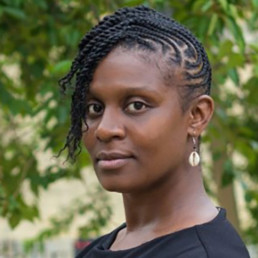
Written by Selena Carty
Cultural and Ancestral Genealogist, Global War Heritage Specialist, Identity and Empowerment Consultant and Founder of BlackPoppyRose.
I was recently asked by the British Army to contribute to its new set of school resources on Remembrance. As the founder of BlackPoppyRose, I accepted the opportunity. My aims are to enlighten all people of the contributions of African, Black, West Indian, Caribbean Pacific Islands and Indigenous communities to history in wars/revolutions and rebellions.
So, let me ask you a question: How do you mark Remembrance Day? For me, I remember Albert Carty who served in World War I in the No’2 Construction Battalion. After arriving in the UK, he travelled across England and Scotland as part of the lumberjack battalion. He returned home after the war and became a father to seven sons. Five went on to join the Royal Canadian Airforce and served in World War II. The remembrance of families doing their part in a world that had set so many apart.
Remembrance means a connection to yesterday and the yesterdays before yesterday, which brings light the relevance of our actions today. When I think about Remembrance, I think of my mother, father, grandparents and great grandparents. I think about the legacies of family. I wouldn’t be here today if it were not for the efforts made by those who made choices before I came into existence.
There is a crucial need to improve how we explain the significance of Remembrance to young people, especially in the UK. We live in a cosmopolitan modern world where everything is moving a lot faster than I remember. Everything is now! (Like Amazon Prime deliveries, with no understanding of the framework, planning and years of innovation to make this happen.)
The legacies that have built the worlds we see today are very often under-educated, misinterpreted or omitted. The more we do to encourage Remembrance will allow us to come together with our own unique stories and share the impacts that the changing worlds and legacies before us have had and will still have on us in the present and near future.
To know that you are connected to something that has passed is significant to why we are here, why we speak the languages we do, why our names are what they are, why we can call more than one place our home or ancestral homes, and even the accessibility to the music that we listen to. All this enables each of us to have a unique perspective about Remembrance that we all benefit from.
Where should children start to learn about their past? With their immediate families as well as their peers and friends’ parent are also potential sources of information teachers. Additionally, organisations like BlackPoppyRose can help point them in the right direction. We also encourage students to check their local libraries, bookshops, museums, galleries and archives as well as the internet by using key phrases or tags.
So, what more can schools do to teach pupils about Remembrance? Tell the truth about what you know. We all have a version of ‘truth’. Telling the truth resonates stronger than untruths as it allows us to identify with the world we currently live in and the legacies we have inherited from the past. It will help to understand the choices made by so many in uncertain times. We cannot change the past, but we can be open and honest about what has happened, allowing us all to work together to find improvements on things that are pre-existing and still affecting us all today.
The British Army has created a library of resources for secondary schools. To access its Remembrance resource, visit https://tinyurl.com/ye2928v7

